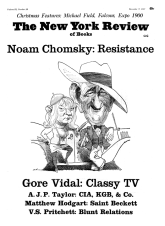To the Editors:
I am writing in behalf of the Russel Wills Defense Fund. Russel Wills holds a Bachelor’s degree in physics from the University of California, Berkeley, and he has a Master’s degree and is a candidate for a Doctor’s degree in philosophy at the University of Washington.
When the actions in question were initiated, he was a married full-time graduate student holding a II-S (student deferment) draft classification. On October 16, 1965, he wrote a letter to his draft board (Local Board #47 in Berkeley) stating that he was so opposed to American military action in Vietnam on both legal and moral grounds that he had destroyed his draft card and would in no way cooperate with the Selective Service System. On October 23, 1965, he received a I-A classification with no explanation appended. The reclassification occurred because he had been declared delinquent for destroying his draft card, although the notice to this effect, dated October 21, 1965, was not mailed to him until January 1966, after the date of possible legal appeal had expired. As a delinquent, he was disallowed an appeal as a conscientious objector. On February 24, 1966, he refused to submit to induction, and on September 23, 1966, he was convicted because of this refusal and sentenced to five years in prison. He was one of the few draft refusers in the nation and the first to be given the maximum prison sentence. An appeal from this decision was heard in the Ninth Federal Circuit. Court on September 6, 1967.
Wills was defended by Seattle attorney Kenneth A. MacDonald, an experienced constitutional lawyer, who based his argument on the following grounds. First, the tardiness of the draft board in sending Wills a delinquency notice denied him the procedural right of appeal. Second, the board exceeded its jurisdiction in punishing Wills for the alleged crime of destroying his draft card—a “crime” for which he was never indicted. Third, the destruction of the draft card was not actually a crime but an act of symbolic free speech, protected under the First Amendment. Fourth, the Selective Service System, by declaring Wills delinquent on the basis of his letter to them, violated his First Amendment right of freedom of speech and of petition to his government for redress of grievances. Fifth, the law making it a felony for a registrant to mutilate or destroy, or not to possess at all times, his draft card, serves no rational purpose, and in violation of the Fifth Amendment, deprives him of liberty without due process of law.
On October 5, 1967, the Ninth Circuit, while reversing several significant points in the District Court decision, upheld the conviction. The Circuit Court ruled that Wills was not denied right of free speech and right of protest; that any loss of administrative review and procedural rights was cured by review by the Court itself; and that Wills’s destruction of his draft card was, in fact, no more than a willful and defiant refusal to carry the card, and as such, was illegal and an act of delinquency.
MacDonald is now seeking an appeal to the United States Supreme Court in Wills’s behalf. The Supreme Court has accepted for hearing O’Brien vs. United States, a case on the constitutionality of the Act against draft card destruction. This case is intimately related to Wills vs. United States. O’Brien argues that the Act is an unconstitutional violation of free speech; Wills argues that, given the unconstitutionality of the Act, the Selective Service cannot use alleged violations of the Act to justify punitive measures against protestors. MacDonald has therefore petitioned the Supreme Court that Wills vs. United States be heard in conjunction with O’Brien vs. United States. Legal victory in both these cases would have very far-reaching consequences to the growing number of young men who, on grounds of conscience and constitutional rights, are challenging the draft and the war-policy of the Administration.
The cost of carrying the Wills case through all the levels of trial and appeal far exceeds the resources of a graduate student. More than two thousand dollars have been raised by faculty and others, but about three thousand dollars remain to be paid on the costs to date, and further appeal will add very substantially to the total expense. For this reason I strongly urge the readers of this magazine to contribute generously to the Russel Wills Defense Fund.
Many of us believe that the undeclared war in Vietnam is unconstitutional and immoral, and even supporters of the war believe in the constitutional right of dissent and protest. Here is an opportunity to express our convictions and to make good our resolution. Please send your contribution to Professor John Moulton, Treasurer of the Wills Defense Fund, Department of Philosophy, University of Washington, Seattle, Washington 98105.
Melvin Rader
Department of Philosophy
University of Washington
Seattle
This Issue
December 7, 1967



